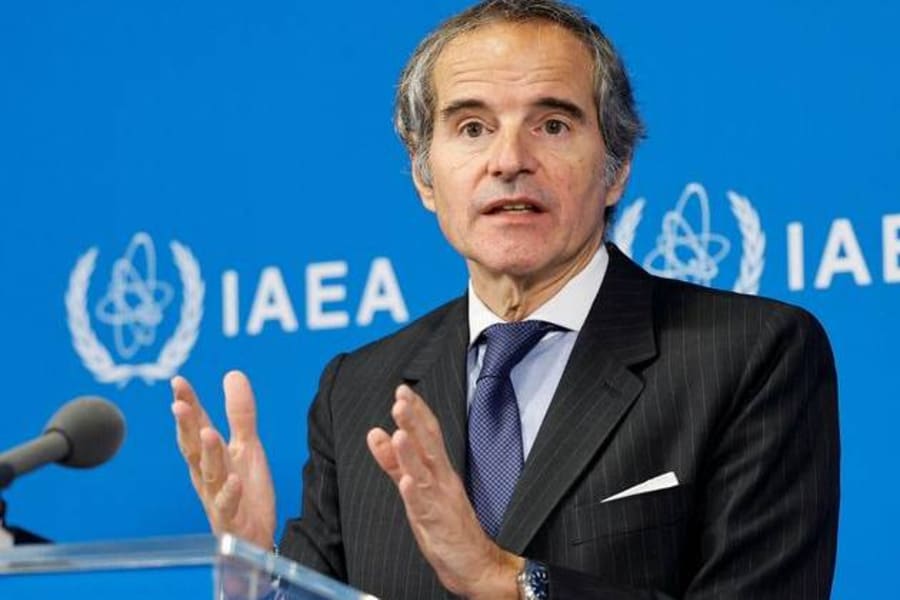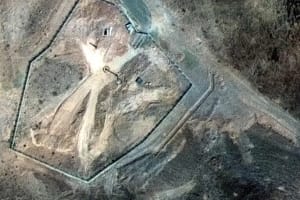UN nuclear watchdog warns Iranian uranium enrichment could restart in 'matter of months'

Rafael Grossi who heads the UN nuclear watchdog International Atomic Energy Agency (IAEA), told the news outlet CBS News on Friday that the Iranian regime could potentially restart uranium enrichment in “matter of months” despite reports that recent Israeli and U.S. strikes caused severe damage to Iranian nuclear facilities.
“They can have, you know, in a matter of months, I would say, a few cascades of centrifuges spinning and producing enriched uranium, or less than that,” Grossi claimed without elaborating.
Israeli intelligence revealed that Israel launched the historic Operation Rising Lion military offensive against Iran after retrieving intelligence that Iran conducted nuclear weapons design tests in a push towards acquiring several nuclear bombs. Following Israeli strikes on Iran’s nuclear sites, U.S. President Donald Trump ordered B2 bombers from the U.S. to bomb Tehran’s main nuclear facilities Fordo, Natanz and Isfahan.
Military experts are currently analyzing the extent of the damage from the U.S. and Israeli strikes on Iran’s nuclear sites.
Iran’s Foreign Minister Abbas Araghchi publicly admitted that the damage is "excessive and serious." However, the Iranian ayatollah regime has vowed to resume its nuclear enrichment and continue with its covert nuclear program.
U.S. President Donald Trump has argued in public that Iran’s nuclear program was totally obliterated. The Israeli military’s spokesman Brig. Gen. Effi Defrin recently assessed that the Israeli and U.S. strikes set back Tehran’s nuclear program years. However, he cautiously added that it is “still too early” to tell.
Assessing Iran’s nuclear sites, Grossi appears to believe that “some is still standing.”
A report, which was leaked on Tuesday, claimed that the U.S. and Israeli strikes only delayed Iran’s nuclear weapons ambitions by three months. The White House has rejected the report.
There are unconfirmed reports that the Iranian regime succeeded in moving some 900 pounds of highly enriched uranium ahead of Washington’s strike on Fordo to an undisclosed location. Iran officially denies that it seeks nuclear weapons. However, Tehran has insisted on enriching uranium to 60%, which is close to weapons-grade level and has no civilian applications. This material could reportedly be further enriched into more than nine nuclear bombs.
“We don’t know where this material could be,” Grossi told CBS News.
“So some could have been destroyed as part of the attack, but some could have been moved. So there has to be, at some point, a clarification,” he continued.
The Iranian regime has so far rejected Grossi’s request to inspect the Iranian nuclear facilities. Furthermore, the Iranian parliament recently voted to suspend Tehran’s cooperation with the IAEA following the U.S. and Israeli strikes.
“We need to be in a position to ascertain, to confirm what is there, and where is it and what happened,” Grossi argued.
However, Trump dismissed the reports that Iran moved the enriched uranium to another location.
“It’s a very hard thing to do plus we didn’t give much notice,” Trump said in an interview with Fox News. “They didn’t move anything,” the U.S. president added without elaborating.
Meanwhile, U.S. Secretary of State Marco Rubio emphasized on Saturday that the Trump administration backs “the IAEA’s critical verification and monitoring efforts in Iran.” Rubio also praised Grossi and his agency for their “dedication and professionalism.”
While Trump has stressed that he prefers a diplomatic path, he has signaled that he is prepared to strike Iran again if Tehran resumes producing highly enriched uranium. Trump has stressed repeatedly that he will not allow the ayatollah regime to develop nuclear weapons.

The All Israel News Staff is a team of journalists in Israel.
You might also like to read this:
















